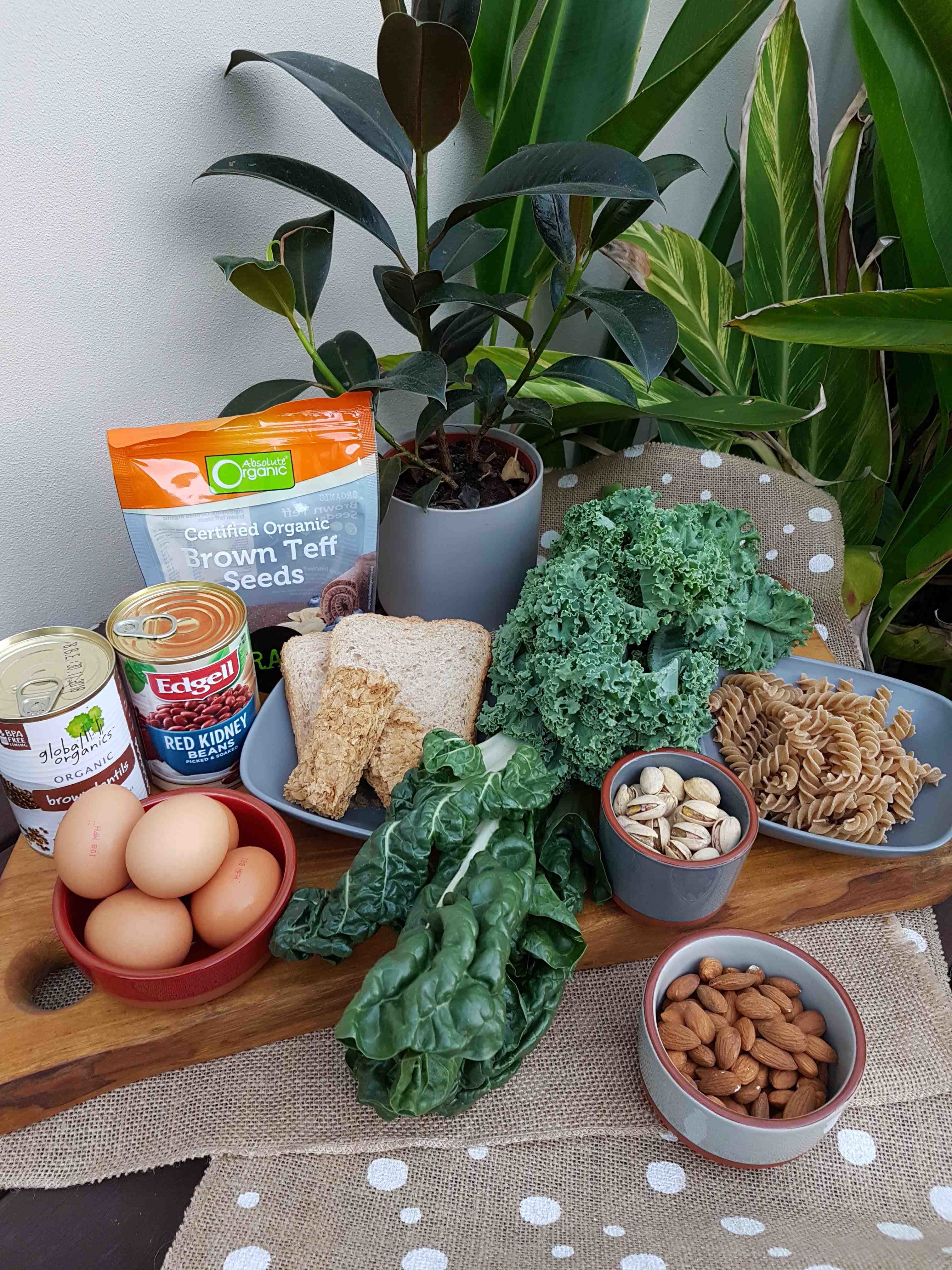 The popularity of vegetarian eating and veganism is growing world-wide. People are choosing this eating style for health, ethical and environmental sustainability reasons. Unfortunately, for a small percentage of people who choose vegetarianism or veganism, this choice may lead to further food restrictions and more rigid food behaviours. In these circumstances, the quest for improved health may in fact lead to unhealthy food and eating behaviours – so guidance from a qualified nutrition professional is important.
The popularity of vegetarian eating and veganism is growing world-wide. People are choosing this eating style for health, ethical and environmental sustainability reasons. Unfortunately, for a small percentage of people who choose vegetarianism or veganism, this choice may lead to further food restrictions and more rigid food behaviours. In these circumstances, the quest for improved health may in fact lead to unhealthy food and eating behaviours – so guidance from a qualified nutrition professional is important.
Vegetarian diets are certainly nutritious with the abundance of plant-based foods contained in each meal. It is rich in fibre, antioxidants, phytochemicals, folate, vitamin A, C and E, potassium and magnesium.
However, when removing whole food groups from a diet, it is not possible for the body to just make its own nutrients that will be missing. The body will rely on getting these nutrients from other foods or supplements as needed. With vegan or vegetarian eating, there are some nutrients that are at risk of inadequate amounts if careful attention is not made to ensure that these are met. The key elusive nutrients include iron, zinc, calcium, vitamin B12 and omega 3 fatty acids.
Non-haem iron is found in iron fortified breakfast cereals, wholegrain breads and cereals, legumes and lentils, tofu, wholemeal pasta, quinoa, teff, edamame, eggs, green leafy vegetables, nut butters, dried fruit (especially apricots), milo, nuts and seeds. Only 5% of the non-haem iron in these foods is absorbed by your body, so you need to eat much more of these foods. Include a vitamin C rich food (orange, broccoli, tomato, berries, kiwifruit, capsicum, cauliflower) with non-haem sources to increase the absorption of iron out of these foods. Coffee and tea interfere with iron absorption, so if you do drink these beverages, drink them 30 minutes outside a meal.
Zinc is an essential mineral and can be found in wholegrain breads and cereals, wheatgerm, legumes and green vegetables.
Ensuring adequate calcium intake is easier with vegetarian eating due to the inclusion of dairy foods such as milk, cheese and yoghurt (3 serves a day). Vegans will have to rely on calcium fortified plant drinks (soy, rice, oat, almond) with at least 120mg per 100mL. Calcium is also found in almonds, hard tofu, tahini and kale.
Vitamin B12 is only found in animal products and it is a vital vitamin for the body. All people on vegan diets should choose foods that are fortified with vitamin B12 (eg soy drinks, vegetarian patties) and take a supplement of cyanocobalamin (100 – 250mcg) daily
Omega 3 fatty acids are vital for brain development and heart health. Including 2 teaspoons of flaxseeds (ground, oil), chia seeds, walnuts, or enjoying some fortified breads will help meet your needs. There are some omega 3 supplements derived from algae that are also suitable.
For vegetarians and vegans, the reality is that more time, attention and planning is required to ensure that nutritional needs are met, so that optimal health can be achieved. Check out plant based dietitians, Amanda Benham and Jane Whitbread for some great ideas for plant based diets.
